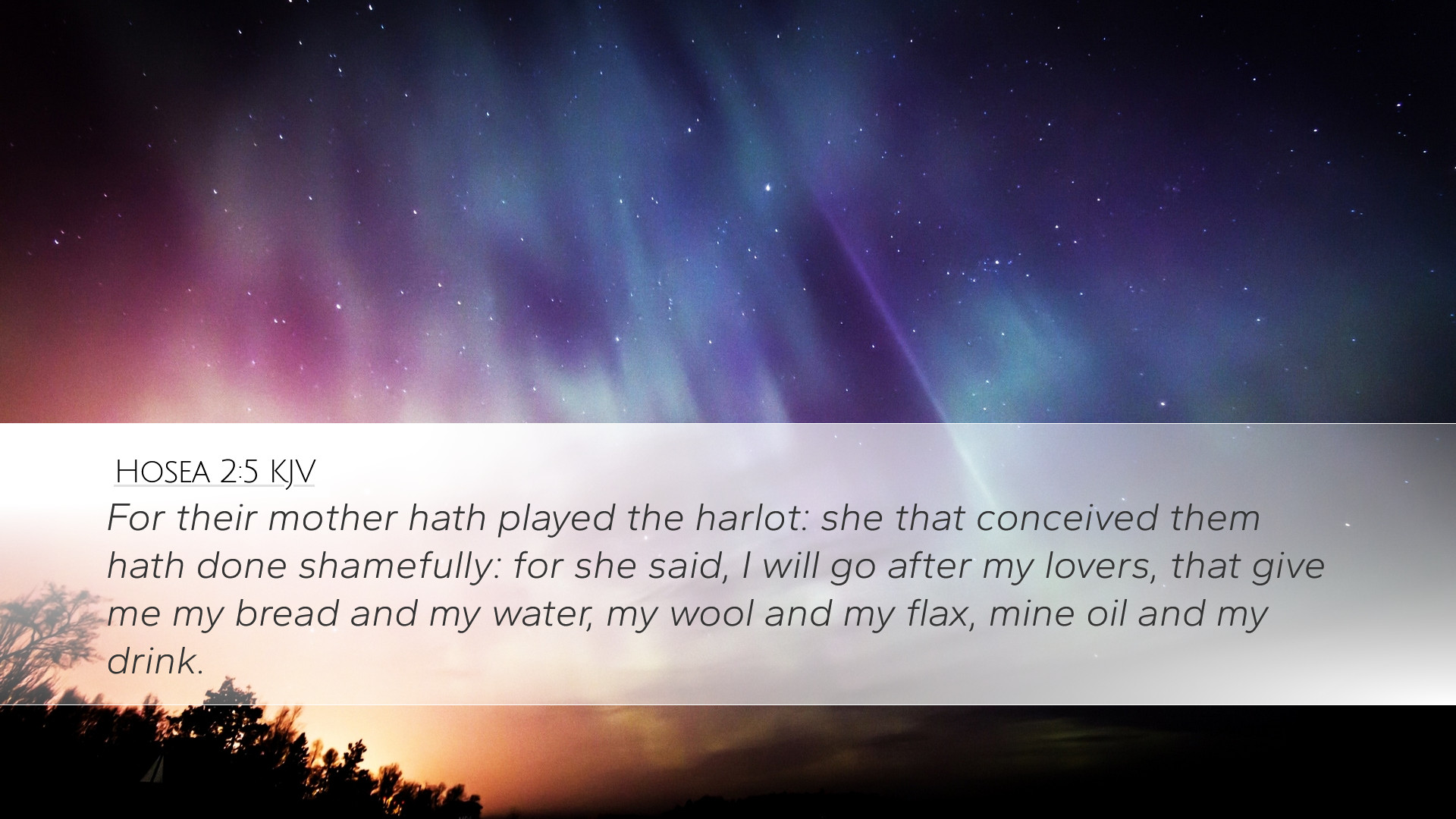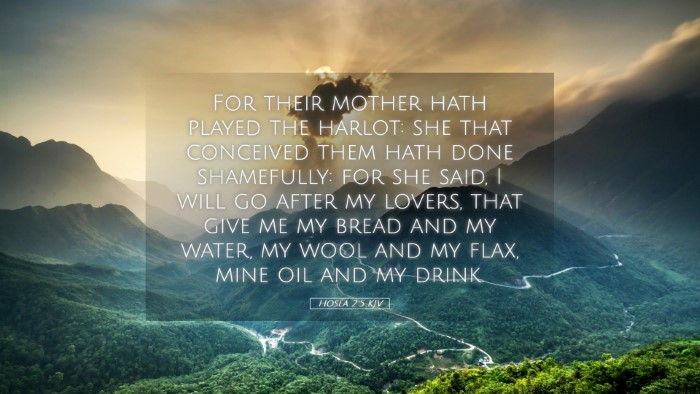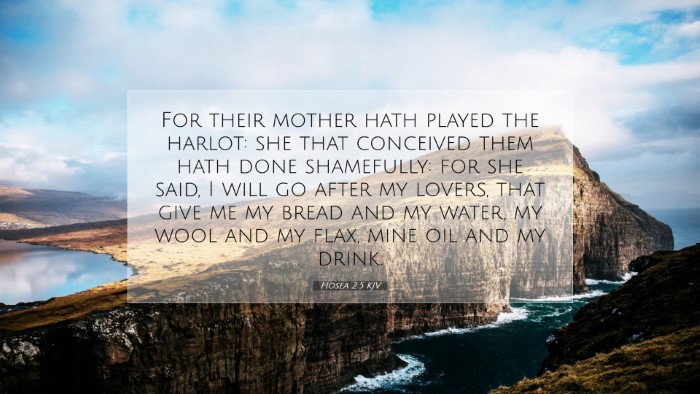Old Testament
Genesis Exodus Leviticus Numbers Deuteronomy Joshua Judges Ruth 1 Samuel 2 Samuel 1 Kings 2 Kings 1 Chronicles 2 Chronicles Ezra Nehemiah Esther Job Psalms Proverbs Ecclesiastes Song of Solomon Isaiah Jeremiah Lamentations Ezekiel Daniel Hosea Joel Amos Obadiah Jonah Micah Nahum Habakkuk Zephaniah Haggai Zechariah MalachiHosea 2:5
Hosea 2:5 KJV
For their mother hath played the harlot: she that conceived them hath done shamefully: for she said, I will go after my lovers, that give me my bread and my water, my wool and my flax, mine oil and my drink.
Hosea 2:5 Bible Commentary
Commentary on Hosea 2:5
Verse Text: "For their mother hath played the harlot: she that conceived them hath done shamefully: for she said, I will go after my lovers, that give me my bread and my water, my wool and my flax, mine oil and my drink." (Hosea 2:5)
Introduction
The book of Hosea is a profound narrative that reflects the spiritual and moral state of Israel during the time of the prophet. Hosea's marriage to Gomer serves as a symbolic representation of Israel's unfaithfulness to God. In this particular verse, God’s sorrow over Israel's infidelity is expressed through the metaphor of a wife’s unfaithfulness.
Understanding the Context
Hosea prophesied during a time of significant moral decay in Israel, amidst idolatry and religious prostitution. The metaphor of marriage is prevalent throughout the book, which captures the covenant relationship between God and His people.
The Role of the "Mother"
The "mother" in this verse symbolizes Israel, who is characterized by infidelity: “For their mother hath played the harlot.” This language underscores the deep betrayal and spiritual failure of Israel, equating their actions to those of an unfaithful spouse.
Spiritual Adultery
Matthew Henry comments on this passage, emphasizing that Israel’s “harlotry” indicates their turning away from God in pursuit of worldly pleasures. Just as a wife who seeks other lovers betrays her husband, so Israel sought after foreign gods, believing they could offer sustenance and satisfaction.
Meeting Physical Needs Versus Spiritual Fulfillment
The latter part of the verse—“that give me my bread and my water, my wool and my flax, mine oil and my drink”—highlights Israel's mistaken belief that these physical provisions could be found outside of their relationship with God. Albert Barnes notes that Israel looked to material and physical needs being met through paganism, forgetting that every good gift comes from the Lord.
The Appeal of Idolatry
Idolatry offers a deceptive allure by promising immediate gratification without recognition of the cost involved—a separation from God. Adam Clarke elaborates that the worship of Baal and other Canaanite gods provided an enticing but ultimately hollow promise of life’s basic needs. This inclination towards idolatry comes with dire spiritual consequences.
Lessons for the Modern Reader
1. The Danger of Spiritual Infidelity
Hosea 2:5 serves as a reminder of how easily one can drift away from true worship in pursuit of seemingly attractive alternatives that promise fulfillment. Pastors and theologians can emphasize this caution, teaching congregants to evaluate their own pursuits and affections.
2. God’s Love and Longing for His People
This verse reveals not just the infidelity but also the resulting yearning of God for His people’s return. In spite of Israel’s unfaithfulness, the Lord's enduring love is evident; He desires reconciliation. This notion is fundamental in pastoral care, showcasing an image of God who longs for the heart's devotion even when it has strayed.
3. The Holistic Nature of God’s Provision
In this longing for worldly sustenance, we write the message of God’s true provision. He offers not mere bread and water but a fullness of life that is spiritual as well as physical. It compels believers to trust in God's sovereign care rather than to chase after the temporary pleasures of this world.
Conclusion
Hosea 2:5 captures the essence of the human condition prone to spiritual infidelity and the longing of God for His people. By returning to this verse, one finds a rich source for understanding the depths of divine love against the backdrop of human betrayal. The insights gleaned from the works of Matthew Henry, Albert Barnes, and Adam Clarke illuminate themes of God’s faithfulness, human frailty, and the consequences of forsaking the source of true life.


